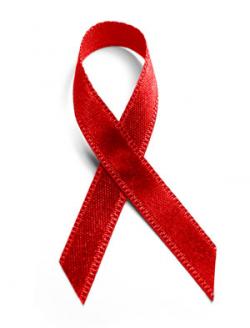 Marlon Hoffman was diagnosed HIV+ in 1989 At that time, there was no support for people living with HIV/AIDS beyond AIDS Regina, now known as Aids Program of Southern Saskatchewan (APSS). It was a new organization, so medical professionals were learning about the disease alongside their patients. The doctoring was non-existent or prehistoric.
Marlon Hoffman was diagnosed HIV+ in 1989 At that time, there was no support for people living with HIV/AIDS beyond AIDS Regina, now known as Aids Program of Southern Saskatchewan (APSS). It was a new organization, so medical professionals were learning about the disease alongside their patients. The doctoring was non-existent or prehistoric.„They didn’t have a doctor in Regina at first, so we went to Saskatoon for appointments. They gave out AZT and everyone got sick. It didn’t work. I didn’t take any medication for the first five years,“ said Hoffman.
Along with a lack of understanding of the disease and those who had it, came the inevitable prejudice against people who were simply trying to stay alive.
„I always felt like there was some prejudice because of being gay, even in APSS on occasion. Most people were sympathetic, but standoffish in a lot of ways. A diagnosis then meant you were far less likely to find a partner. Nowadays I think the GLBTQ community is still struggling. One day they are behind you, and then the next day, they don’t want to be standing next to you,“ said Hoffman.
Establishing an HIV+ status is never easy, whether you are in your community, with your family, or at work. There have been great strides made in acceptance as understanding of the disease becomes more accessible and common place, but daily challenges must still be faced.
„I work with people who live in a very specific world view. When they think of HIV at all, it’s often associated with drug usage, or with First Nations people. Now we have clean-up containers and educational pamphlets at work and it’s getting better,“ said Hoffman.
2010 marked the 25th anniversary of APSS, and now, in 2014, Regina is home to specialists who work exclusively with HIV and immune deficiencies, knowledgeable nurses and pharmacists and a network that allows for easier delivery of medication.
But the changes, even ones for the better, such as longer life expectancy, often come at a cost, both financial and health-wise.
The cost of HIV medication is high, but government health care offers extended health benefits based on income, APSS has a client-based benefit system and many workplaces also have benefits. Without them, the medication can cost in excess of $1500 per month.
„Nowadays, I think, because people are living longer, there’s this absurd thought that it doesn’t really matter. You don’t see sickness now like back then. People aren’t just wasting away. I find it sad that there are young people being diagnosed now because there’s no reason for it – not anymore,“ said Hoffman.
A lack of visible sickness in HIV+ people, combined with the mistaken belief that drug maintenance is actually a cure, are just two items contributing to higher numbers of diagnosis in Saskatchewan.
„My advice to someone who gets diagnosed now? Get educated. I don’t know if you need to be a spokesperson if you are HIV+, but you can be educated. Get counselling if you need it. The diagnosis is like mourning in a way. You go through stages. And make sure you aren’t putting yourself or others in danger. Practice safe sex. The only person you really know is yourself. Always take your meds. Try to stay mentally healthy – make plans! You’re not going to die tomorrow,“ said Hoffman.
Together, the health industry, people living with HIV/AIDS and their allies continue their work on education, prevention and perhaps, someday, a cure.
Source: Positive Living Society
